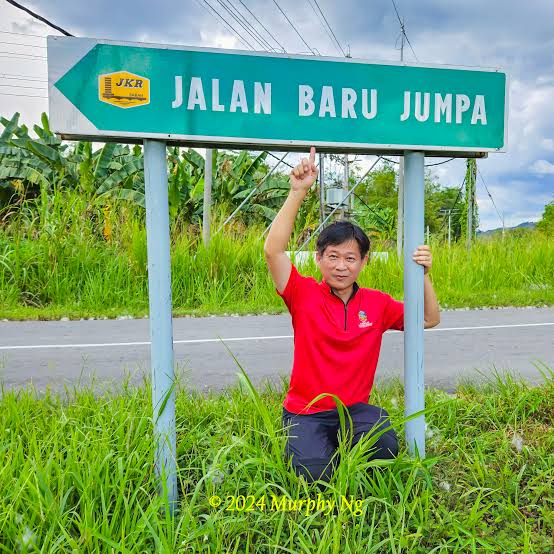IN Malaysia
After more than 3 years as the Chief Secretary, Zuki makes way for Shamsul Azri
The PM Office announced yesterday that the current director-general of the Prime Minister’s Department’s public private partnership unit, Datuk Seri Shamsul Azri Abu Bakar will be replacing Tan Sri Mohd Zuki Ali as the new Chief Secretary, effective August 12. The 55-year-old American educated public servant will have a huge task in hand to manage the public machinery so that Malaysia can become a high-income nation by 2027. In Tok Sam we trust!
https://twitter.com/bernamadotcom/status/1821178858944786674/photo/1
Are Malaysian companies going to dip their toes in Thailand SEZs?
PM Anwar Ibrahim is toying with the idea of including local private sector and start-up companies in the proposed establishment of the Southern Thailand Special Economic Zone, during his meeting with Thai Foreign Affairs Minister Maris Sangiampongsa in Putrajaya. PM Anwar added that the involvement of the private sector could increase investment in the SEZ, especially in the rubber and food industries. At the moment, Thailand has successfully developed ten special SEZs in the country, including the ones in Songkhla and Narathiwat which border Malaysia.
Source: https://www.channelnewsasia.com/asia/malaysia-thailand-sez-anwar-4531966
Data centre is still the cool kid on the block
Deputy Communications Minister Teo Nie Ching announced that Malaysia is on track to achieve RM3.6 bil in revenue by 2025 in the data centre industry based on the positive signals in the market. According to Teo, from 2021 to 2023, Putrajaya approved RM114.7 bil in investments towards data centres and cloud services and created over 2,325 high-value job opportunities in specialised fields.
Source: https://theedgemalaysia.com/node/721974
However, data centres consume two precious commodities for them to exist and operate – land and electricity. Due to the fact that power-hungry data centres are mushrooming left, right and centre, it opens the risk of a short-term power crunch, especially in peninsular Malaysia. According to UOB Kay Hian, Putrajaya may announce short-term extensions of power purchase agreements (PPAs) worth two gigawatts for expired gas-fired power plants. UOB Kay Hian predicted that four power plants will be the beneficiaries of these short-term PPAs – Malakoff’s 350-megawatt power plant in Prai and Edra Energy’s Panglima 720-megawatt plant, Tenaga’s Gelugor 310-megawatt plant, and Teknologi Tenaga Perlis Consortium Sdn Bhd’s 650-megawatt plant.
Source: https://theedgemalaysia.com/node/721979
One key thing needs to happen for a better Malaysia – fewer monopolies
Professor and Provost for Research and Innovation at Malaysia University of Science and Technology, Dr Geoffrey Williams said that the removal of monopolistic licenses in certain sectors could open up competition, lower prices and reduce the cost of living. For example, Malaysia has the right climate to produce rice and rice is the staple food of most Malaysians – consuming 121kg of rice per capita in 2021. However, about 30% of our rice is imported on an annual basis – no thanks to monopoly company Padiberas Nasional Berhad (Bernas) which failed to incentivise more productive rice production in Malaysia.
Annyeonghaseyo, South Korea intend to forge a closer defence collaboration with Malaysia
After successfully selling 18 FA-50 fighter jets to Malaysia in an RM4 bil deal, the South Korean government aims to upgrade its defence relationship from a ‘buyer-seller’ status to a more upgraded status by offering a comprehensive package including technology transfer, logistics support and extensive training.
Source: https://www.bernama.com/en/world/news.php?id=2326427
In the near future, Malaysia is looking at South Korea again to upgrade its fleet of K200 Infantry Fighting Vehicles (IFV). In the 1990s, 111 K-200 KIFV were imported from South Korea and Malaysia is the sole export customer of this armoured vehicle. With various modernisation plans ongoing both in the Malaysian Navy and the Air Force, perhaps the defence industry is the upcoming high-impact industry in the country.
Around the S.E.A.
Tesla singing the NSYNC’s Bye Bye Bye Bye Bye to Southeast Asia
According to the Thai online news portal The Nation, Tesla Inc. is abandoning its plans to set up factories in Malaysia, Thailand and Indonesia and wants to focus purely on charging stations. Tesla will only proceed with its plan in China, America and Germany. Although Tesla reported higher revenue for 2Q2024, registering USD25.5 bil, 2% higher compared to the same period last year, there are signs in some markets that the electric vehicle (EV) sales are slowing down. In Germany, the number of EV registrations in July 2024 dropped by 37% compared to July 2023, as more consumers preferred the good old internal combustion engine (ICE) cars. Perhaps, Tesla is pulling the brakes on most of its investment plans and playing the ‘wait-and-see’ game until the market stabilises again.
Source: https://theedgemalaysia.com/node/722018
Bank of Japan plays nice to tame the market
Bank of Japan Deputy Governor Shinichi Uchida played down the possibility of increasing the rate, at least for the short term, after the recent interest rate hike sent the global markets into the red. The Japanese yen has traditionally been a popular tool for carry traders who borrow the yen at low rates to invest in assets that offer higher returns. When the BOJ suddenly increased the rate recently, investors bailed out from Japan and it triggered a huge tsunami in other markets, up to a point where the seven most-valuable U.S. tech companies lost a combined USD1 tril in market value at the start of trading on Monday. A carry trade involves investors borrowing in currencies that have low interest rates, such as the Japanese yen or Swiss franc, and buying higher-yielding ones such as the Mexican peso or, recently, the U.S. dollar.
Yen CarryvTrade Explained pic.twitter.com/OkyHBkG13q
— Naveen (@NAVofNav) August 6, 2024
For your EYES only
Congratulations Turkish Yusuf Dikec for bagging a silver medal in the Olympics and for being the coolest athlete during the Paris Olympics. Did you know that Yusuf is a retired non-commissioned officer of the Turkish Gendarmerie, a paramilitary unit in Turkey.
— Satan (@s8n) August 6, 2024







